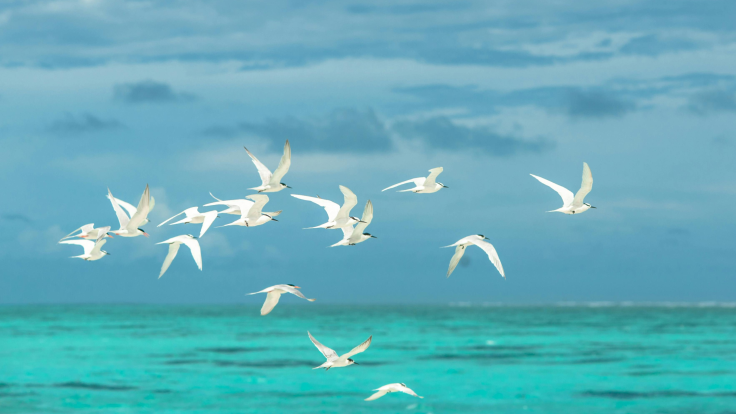Billions of Birds Vanishing Across America as Climate Chaos Disrupts Migration — Experts Warn 'We're Next'

A silent crisis is unfolding across the skies of North America. Once-crowded dawn choruses are fading as billions of birds vanish, their ancient migratory patterns unravelled by climate disruption, habitat loss, and shifting seasonal cues.
Scientists warn this collapse may be an omen for the planet itself. Since 1970, the continent has lost nearly 3 billion breeding adult birds, a 29 per cent decline, according to a landmark study by the Cornell Lab of Ornithology. Now, new data suggest that climate change is accelerating this downward spiral — altering migration routes and endangering species once thought to be resilient.
When the Sky's Compass Fails
Migratory birds rely on a delicate rhythm of light, temperature and food. They depart and arrive based on the timing of insect blooms and plant growth. But as spring temperatures rise earlier each year, many species are now out of sync with their food sources.
A 2025 study by the University of Saskatchewan found that Hudsonian Godwits now arrive at Arctic breeding grounds seven days later than a decade ago — missing the critical insect peak that fuels chick survival.
Meanwhile, vital stopover sites in North Africa and the Mediterranean are drying up, according to BirdLife International.These wetlands once offered refuge during marathon migrations across the Sahara. Without them, exhausted birds are forced to fly longer distances without food or water — a death sentence for many.
Decline Along America's Flyways
The problem extends beyond Africa. Along the Atlantic Flyway— one of the world's major migratory corridors — forests, grasslands, and coastal marshes are shrinking due to urbanisation and rising seas.
Research from Binghamton University shows that long-distance migrants, like warblers and swallows, are skipping essential rest stops or arriving at depleted habitats. The result: higher mortality and fewer birds returning each spring.
Radar tracking has revealed a staggering 2.6 billion fewer land birds between autumn and spring migrations compared with the 1970s.
The culprits include habitat destruction, light pollution, glass collisions, and increasingly unpredictable weather patterns linked to global warming.
A Canary in the Global Coal Mine
Birds are more than symbols of wilderness; they are barometers of planetary health. Their decline signals cascading effects across ecosystems — from crop pollination and seed dispersal to pest control and water quality.
According to IUCN's 2025 Red List update,16 migratory shorebird species were recently upgraded to higher threat categories, including the Red Knot and Semipalmated Sandpiper. The loss of such species suggests the early stages of ecological collapse.
What This Means for Humanity
The crisis stretches far beyond ornithology. The same climate forces derailing migration also threaten global food systems, pollinators, and fisheries. If birds — creatures that can cross oceans — cannot adapt, it raises a haunting question: what chance do we have?
Economically, the loss is immense. Birdwatching tourism generates over $100 billion annually in the U.S. alone, supporting conservation and local economies. Yet, beyond money, it's the emotional and cultural silence — the vanishing dawn chorus — that most profoundly marks the cost.
What Can Still Be Done
Experts insist it's not too late.
- Protect and restore wetlands, forests, and grasslands along migratory routes.
- Reduce pesticide and fertiliser use to safeguard insect populations.
- Lower artificial lighting during migration seasons.
- Cut carbon emissions driving extreme weather.
The US Migratory Bird Conservation Programme and international flyway restoration projects inLatin America and Africa are showing early promise. But scientists warn that delays of even a decade could make recovery impossible for dozens of species.
As one Cornell researcher put it: 'The birds are telling us the system is failing — we just have to listen before the silence becomes permanent.'
© Copyright IBTimes 2025. All rights reserved.





















